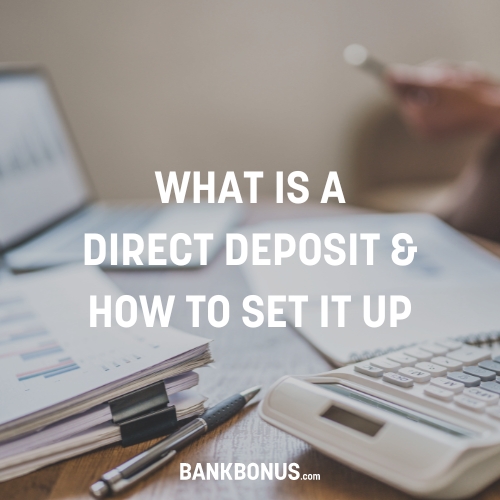Unexpected expenses can catch you off guard and derail your finances if you don’t have an emergency fund in place. From job loss to health issues and car trouble, it’s important to be prepared for sudden expenses.
Emergency funds are an important part of your personal financial plan that shouldn’t be overlooked.
In the guide below, we’ll explore the basics of emergency funds and where you should keep them.
What Is An Emergency Fund For?
An emergency fund is simply a designated amount of money that you set aside for unexpected financial emergencies.
It serves as a safety net to cover sudden expenses related to medical bills, car repairs, or job loss.
Having an emergency fund can shield you from having to rely on credit cards or taking on debt in these scenarios. It provides a sense of financial security and peace of mind, providing immediate access to cash when you need it the most.
By saving up for an emergency fund, you can proactively prepare for life’s uncertainties so you can navigate through them without significant financial setbacks.
That being said, keep in mind that your emergency fund shouldn’t be used for trivial purchases like buying a new TV, remodeling your house, or taking a long vacation.
Where Should I Keep My Emergency Fund?
There are several types of accounts you could open for your emergency fund. The best banks or credit unions for your emergency savings are the ones that let you access your money easily. They should also offer higher interest rates and have no early withdrawal penalty.
You should also choose an FDIC or NCUA-insured account, unless you’re investing, so your deposits will always be safe. Beyond that, where you keep your account depends on your preferences.
Here are a few of the best places to keep your emergency fund:
1. High-Yield Savings Accounts
A high-yield savings account might be a great option, especially if it earns competitive APY.
The highest yields typically come from online banks, which can offer more competitive interest rates because they don’t have the same overhead costs as traditional brick-and-mortar banks.
There are a handful of banks with 5% interest savings accounts. I used to keep my entire emergency fund in an Ally savings account but recently put six months of my emergency fund there to enjoy a higher APY.
As you compare accounts, consider accessibility. An emergency can happen at any time, so it should be easy to withdraw money from the account when you need it the most.
¹Annual Percentage Yield (APY) is accurate as of 1/17/2024 and subject to change at the Bank’s discretion. The minimum deposit required to open an account is $500 and a minimum balance of $0.01 is required to earn the advertised APY.2. Money Market Accounts
Money market accounts are similar to high-yield savings accounts, with more competitive yields than traditional savings accounts.
Some people prefer MMAs for their additional features like the ability to write checks and use a debit card. You can find an MMA at lots of traditional and online banks.
Look for high-interest rates and easy accessibility.
3. Certificates of Deposit
CDs are the third savings vehicle to consider for your emergency fund. They hold your money for a set term that usually ranges from one month to five years. Once your account reaches its maturity date, you can freely access the funds you deposited and the interest they earned.
Just keep in mind that CDs have less liquidity, so they may be less suitable for emergencies. While you can withdraw your money early, you’ll likely be hit with a fee, although there are some no-penalty CDs out there.
4. Investment Accounts
You could also invest your emergency fund, or at least part of it, to earn more money over time. After all, if you aren’t gaining something on your account, you may lose money every year due to inflation.
Stocks and bonds, though, can’t be redeemed whenever you want. They’re a less liquid and higher-risk investment than putting your money in a bank account. It’s important to make more conservative investments for your emergency fund.
Learn More:
Worst Places to Keep Your Emergency Fund
On the opposite end of the spectrum, here are a few places that are less ideal for storing your rain day fund:
- Under the mattress: Keeping your emergency fund at home may seem like a convenient and accessible option, but it poses significant risks. Apart from being exposed to fire and theft, the money can’t grow and it’s vulnerable to inflation. It’s also difficult to track and may be easier to spend on non-emergency expenses.
- Checking account: While checking accounts offer easy access to your funds, they generally yield low interest, or none at all. This means that your emergency fund won’t grow over time. Additionally, having your money readily available in a checking account may tempt you to spend it on non-emergency purchases.
- Traditional savings account: While a savings account is a better option than a checking account, the interest rates aren’t the highest. You can usually find far higher rates in a high yield savings account from an online bank, and as an added perk, you’ll usually enjoy an excellent user experience with a streamlined mobile app.
- High-risk investments: Investing your emergency fund in high-risk assets, such as stocks or speculative ventures, is unwise. Emergency funds should be liquid and easily accessible, whereas high-risk investments can be volatile and subject to market fluctuations. In times of financial need, you may find yourself forced to sell at a loss.
How Much Should I Save in My Emergency Fund?
The amount of money you should have in your emergency fund or emergency savings account depends on your needs and lifestyle. Ultimately, most experts agree that you should save enough to cover at least three to six months of expenses.
Try to save enough to keep your lifestyle afloat and be able to survive several months of expenses without income
Some people like to save just the minimum to cover essentials like rent, utility bills, and food. Others prefer to save a little more to provide extra comfort, even in a financial emergency.
To calculate the amount you need, you should think about your current savings, debt, total monthly expenses, and the type of lifestyle you plan on maintaining if a financial emergency arises.
How to Build Up Savings For an Emergency Fund
Here are our tips to help you build up your savings account:
1. Build a Bank Account Buffer
Building a bank account buffer is the first step. Regardless of your ultimate saving goals and lifestyle, you should keep at least $500 to $1,000 in your account as a buffer.
It’s an excellent decision to keep this account buffer even if you’re in debt, and your instinct tells you to use every extra penny to pay it down.
Don’t underestimate the power of having even this small amount available in case you need it.
2. Cut Unnecessary Expenses
Are you paying for any subscriptions or services you don’t use? My advice is to cancel them, now.
It’s easy to forget about ongoing subscriptions—money keeps coming out of your account every month, and you don’t even notice.
To quickly build up savings, you should aim to cut costs wherever possible, especially expenses for non-essentials that don’t bring you joy.
3. Set a Monthly or Weekly Savings Goal
Calculate a fixed amount you’d like to save based on your needs, and set a time limit for reaching that amount.
After that, set a smaller goal of how much you want to save each week or month to reach your goal.
This way, you can turn saving into a game. Plus, as human beings, we’re more motivated to do something when we have a goal. You could even reward yourself for reaching your goal with a nice dinner out or something else you like to reinforce the behavior.
4. Invest Some Money
Investing a part of your emergency fund is a great way to build up extra cash relatively quickly if you make the right investments. It’s best not to invest everything you have saved and keep some cash available in a regular bank account.
Investments don’t have the same short-term liquidity as bank accounts at online banks or brick-and-mortar banks.
An investment or brokerage account alone may not be the best choice if your goal is to have immediate access to your funds.
5. Pay Off Your Debt
If you’re in debt, chances are you’re wasting a lot of money on interest rates every month.
It’s best to pay off your credit card debt, personal loans, car loans, or anything else with an interest rate above 7% as soon as possible to boost your savings and fund your emergency account faster.
6. Take Advantage of Direct Deposit
If your employer gives you the option to get paid through direct deposit, you can automatically dedicate part of your paycheck to your emergency fund. This way, you won’t have to take a separate action of putting aside money yourself.
The amount you choose will go to the intended savings account, which is convenient and eliminates the temptation to use your emergency fund for non-emergencies.
7. Save Your Tax Refund
Once a year, if you qualify, you should get a tax refund. If you expect one, consider asking for the refund to be deposited directly into the emergency fund while filing taxes.
Doing this could be an easy way to boost your savings, and you’d be surprised how much you can end up saving with this simple method year after year.
8. Earn More Money
Having an extra stream of income coming in is always a great idea.
First of all, it’s always faster to build up money by earning more rather than saving. Second, it can be crucial to have another option if you get laid off or have to leave your main job for personal reasons suddenly.
You can get a part-time job, work overtime, start a passion project, or launch a side hustle that pays some money. Options are virtually unlimited.
9. Invest Some Money In a Retirement Fund
After you have some money saved up, you can put some in a 401(k) or start a Roth IRA to jump-start your retirement savings.
If your employer matches your 401(k) contributions, you’ll have even more benefits from opening one.
Both the 401(k) and the Roth IRA are retirement plans. The main difference between the two is how they are taxed. A Roth IRA has greater tax benefits and is generally a more flexible investment. Still, make sure you take advantage of the 401(k) up to the matching limit first.
10. Build Other Savings Accounts
This step should ideally happen after saving enough money to comfortably cover emergencies.
After you have a satisfactory amount in your emergency fund, consider opening separate savings accounts for each goal.
You could have sub-accounts to save money for living expenses like clothing, car maintenance, vacations, or other financial goals you know you want to reach.
Frequently Asked Questions
What banks are best for emergency funds?
Emergency funds are usually stored in high-yield savings accounts, money market accounts, or even invested at times.
Here are a few banks we recommend:
Is a $1000 Emergency Fund Enough?
It depends. The most common advice is to keep at least $500 as an emergency fund, but in most cases, that won’t be enough. The right amount for your emergency fund depends on what it would take to cover your monthly expenses and allow you to maintain your lifestyle.
Should I Keep an Emergency Fund in Cash?
Your emergency fund, or at least part of it, should be accessible, in the form of cash in a bank savings account. However, it isn’t wise to keep your emergency fund at home. Focus on finding an account from a reliable bank that pays competitive interest rates and allows you to easily access your funds.
The content on this page is accurate as of the posting date; however, some of the offers mentioned may have expired or changed.






Comments are closed.
Comments are closed here.